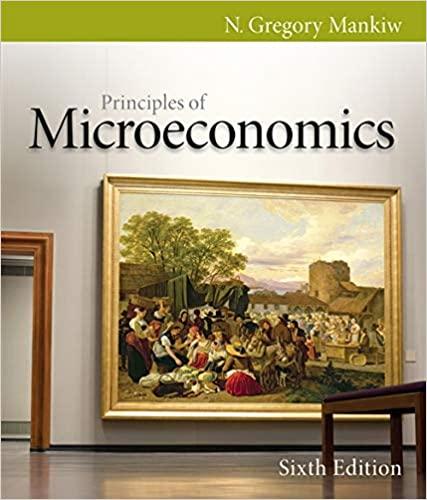Bill and Hillary produce food and clothing. In an hour, Bill can produce 1 unit of food
Question:
Bill and Hillary produce food and clothing. In an hour, Bill can produce 1 unit of food or 1 unit of clothing, while Hillary can produce 2 units of food or 3 units of clothing. They each work 10 hours a day.
a. Who has an absolute advantage in producing food? Who has an absolute advantage in producing clothing? Explain.
b. Who has a comparative advantage in producing food? Who has a comparative advantage in producing clothing? Explain.
c. Draw the production possibilities frontier for the household (that is, Bill and Hillary together) assuming that each spends the same number of hours each day as the other producing food and clothing.
d. Hillary suggests, instead, that she specialize in making clothing. That is, she will do all the clothing production for the family; however, if all her time is devoted to clothing and they still want more, then Bill can help with clothing production. What does the household production possibilities frontier look like now?
e. Bill suggests that Hillary specialize in producing food. That is, Hillary will do all the food production for the family; however, if all her time is devoted to food and they still want more, then Bill can help with food production.
What does the household production possibilities frontier look like under Bill’s proposal?
f. Comparing your answers to parts
c, d, and e, which allocation of time makes the most sense? Relate your answer to the theory of comparative advantage.
For further information on topics in this chapter, additional problems, applications, examples, online quizzes, and more, please visit our website at www
.cengage.com/economics/mankiw.
Step by Step Answer:







